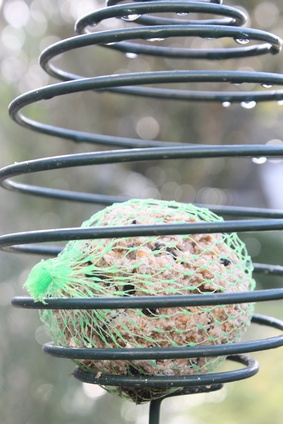
If you are looking to lead an organic lifestyle without the added chemicals and commercial-growing side effects, you may want to consider raising free-range chickens. Free-range refers to allowing chickens to roam freely or in a large open area as opposed to being confined to a small or contained space. This is believed to be a more humane way of raising chickens and allowing them to be outside with access to exercise and the sun, allows them to eat natural food sources in addition to grain feed. This method of raising chickens can be permanent or have certain restrictions per the farmer or the U.S. Department of Agriculture or other Food and Safety Inspection Service, depending on the country and the regulations in place.
Here are few tips in getting started with raising free-range chickens.
Obtain Healthy Chicks
It is important to purchase healthy chicks that are raised pesticide-free in an open-air environment. Choose an organic farmer or trusted source that assures you their chickens and chicks are free to roam and free to feed on natural foods. Avoid feed stores, large auctions and private hatcheries in which the chickens past living conditions cannot be guaranteed.
Create a Free-Range Environment
Build a chicken coop or outdoor lean-to that allows chickens and roosters to roam freely. You may also want to consider a portable chicken home called a chicken tractor or ark. This eliminates the ground from getting packed down and leads to healthier chickens and higher quality eggs. Avoid chicken fences within close proximity to the hen house. Be sure to allow them easy access to the coop and food grain and water area continuously. Grass or pasture is the best choice for free-range birds but don't forget to provide grit in addition to some gravel for your chickens to keep them healthy. While free-range is encouraged, always make sure there is an additional lean-to or small hutch for chickens to visit if they are far away from the main coop.
Hygiene
Keeping the coop and the surrounding grassy area clean will help reduce disease and illness. Make sure you only use organic feed and use leach-free feeders and waterers to avoid contaminants from entering your chicken's blood stream. Move your chickens every 6 months or more frequently if you have several-this will promote a healthy lifestyle and result in happier chickens. If your hens are not getting enough daylight or are confined to cramped spaces and not allowed to roam freely, the results will be yellow yolks-a good indicator they are too confined within their living space.
 Transport & Tourism Industry News & Show Updates Kuoni Academy
of your little should carry personal information on them
Transport & Tourism Industry News & Show Updates Kuoni Academy
of your little should carry personal information on them
 Bird Watching: Beautiful Birds Seen in Western Australia
Collection of Beautiful Bird
Bird Watching: Beautiful Birds Seen in Western Australia
Collection of Beautiful Bird
 How to Build a Simple Bird Trap?
How to Build a Simple Bird Trap?
How t
How to Build a Simple Bird Trap?
How to Build a Simple Bird Trap?
How t
 How to Make a Bird House for Doves
How to Make a Bird House for Doves
How
How to Make a Bird House for Doves
How to Make a Bird House for Doves
How
 How to Make Homemade Bird Food Suet
How to Make Homemade Bird Food Suet
Ho
How to Make Homemade Bird Food Suet
How to Make Homemade Bird Food Suet
Ho
Copyright © 2005-2016 Pet Information All Rights Reserved
Contact us: www162date@outlook.com